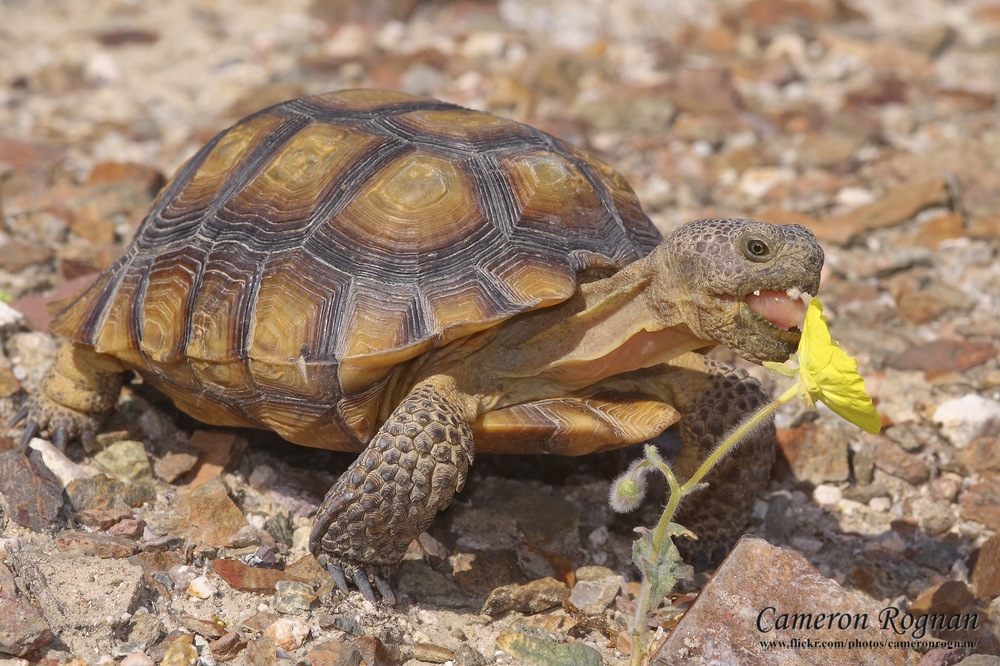Mojave Desert Tortoise
(Gopherus agassizii)
These desert dwellers have a high domed shell, 8-15 inches in length, with prominent growth lines. Their forelimbs and hind limbs are stocky and covered with large scales. Desert tortoises inhabit a variety of desert shrub lands, but are most frequently found in the Reserve near areas with desert washes or below rocky slopes. They spend 90% of their life in underground burrows or rocky shelters. Some shelters can be up to 30 feet long, however most burrows are about 5-6 feet in length.
Desert tortoises are vegetarians, eating a variety of desert plants, flowers, and fruits. Their mating season is from April – October. Baby tortoises are about the size of a silver dollar and typically hatch during the late summer. Shortly after being listed as a federally threatened species, the desert tortoise and its habitat were protected by the creation of the Red Cliffs Desert Reserve in 1996.
If you see a tortoise in the wild, please admire it from a distance and do not pick it up. Some tortoises may void their bladder (or pee) if they are disturbed. That might not sound like much, but tortoises are well adapted to survive in the hot desert and losing this valuable water can lead to dehydration or death. For this very reason it is actually illegal to pick up a wild desert tortoise. There is one important exception. If you see a tortoise crossing the road or in immediate danger, we encourage you to please move the tortoise out of harms way. If this occurs, hold the tortoise low to the ground with both hands and move it in the direction it was headed. If there is a fence nearby, place it on the other side of the fence. Please give us a call if you move a tortoise so we can figure out how the tortoise got there and see if our fence needs repair. If you find a tortoise in your yard, or anywhere else you think it should not be, please call us at (435) 301-7430 to have it removed.
Since tortoises are protected, it is illegal to take them from the wild and keep them as pets. If you, or someone you know has a desert tortoise please advise them to turn it in to the Red Cliffs Desert Reserve or Utah Division of Wildlife Resources. We will gladly accept your tortoise – no questions asked. If you ever observe or suspect poaching of desert tortoises or any other protected wildlife, please call the poaching hotline: 1-800-662-3337.
For additional information: FWS Website on Mojave Desert Tortoise
